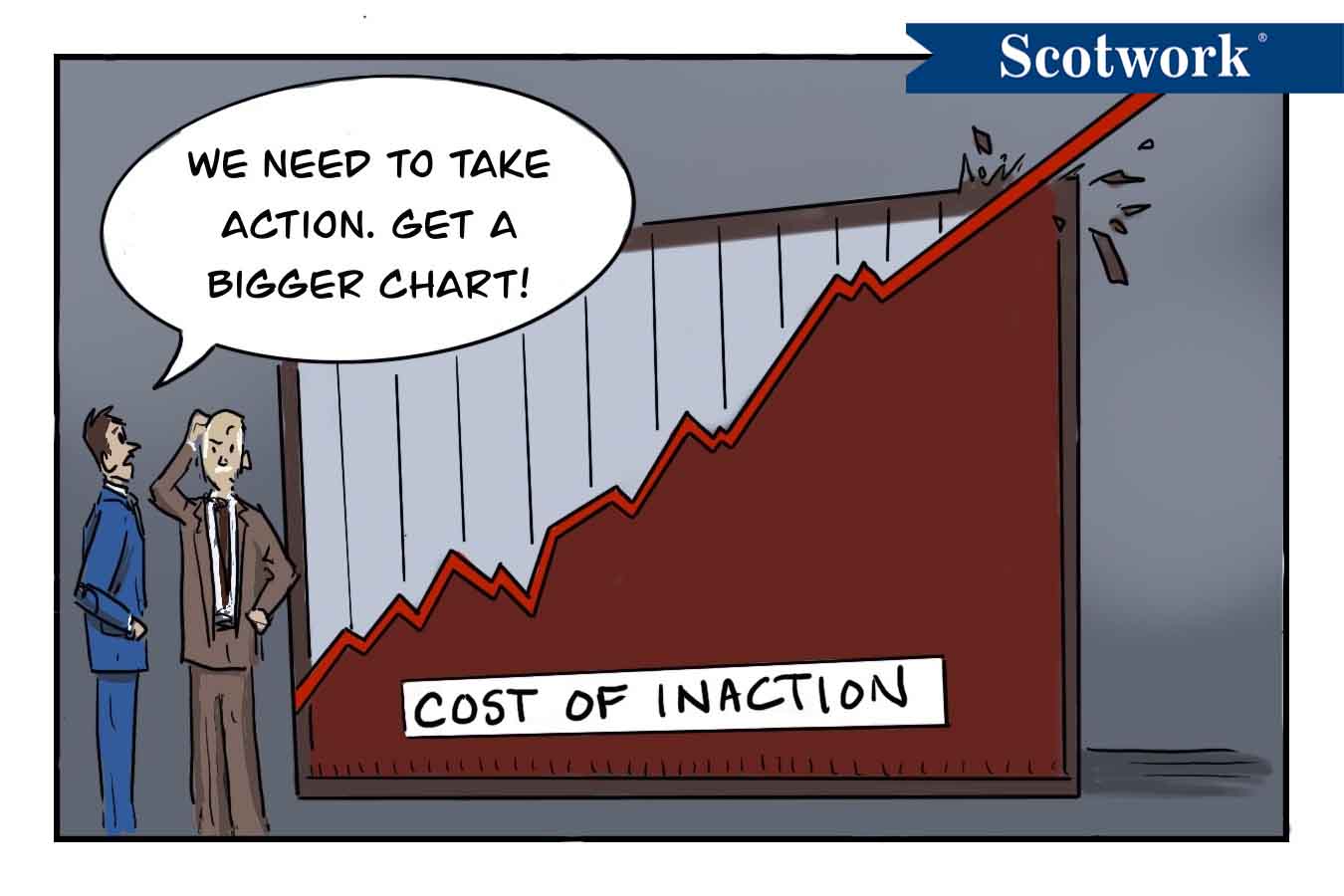When organizations want to improve their negotiations, they tend to focus on benefits like better deals, stronger relationships, and increased profitability. They should also consider the cost of inaction, which can be extremely far-reaching. Bad deals impact revenue and the bottom line, not to mention an organization’s culture, relationships, and future growth. That’s why better negotiation is a non-negotiable for any team or organization.
Here are some examples of the cost of inaction:
1. Erosion of Profit Margins
Poor negotiations directly affect profitability. Teams that cannot negotiate effectively may overpay, underprice, or miss opportunities to capture additional value. Over time, this can create a cumulative impact that severely erodes margins. Bad deals’ compounding effects can put an organization on the brink and create pressure. When this happens, organizations treat the symptoms as they look for immediate relief — like instituting new approvals for pricing reductions or requiring more people to be involved in the dealmaking process for oversight. The only way out is to treat the root cause.
Inaction in practice: A sales team consistently concedes on pricing. This results in lower margins that compound over hundreds of transactions, significantly reducing overall profitability.
2. Damaged Relationships
Negotiation is more than just closing a deal; it’s about building sustainable relationships. We typically negotiate with those we do business with (external), those we work with (internal), and those we live with (personal). In almost every scenario, the negotiations are not “one and done,” but rather a series of negotiations that shape relationships. If we focus only on each individual deal without taking a broader view, our negotiations can become transactional or, worse yet, adversarial.
Inaction in practice: A procurement team takes a win-lose mindset during a supplier negotiation. Once the deal is done, the supplier, feeling undervalued, puts more effort into recouping what they lost and starts to “nickel and dime” any deviation from the agreement while prioritizing other customers.
3. Increased Risk
Poorly negotiated contracts often contain vague or unfavorable terms that expose organizations to significant risks. These risks may include financial losses, legal disputes, or operational disruptions. This when teams focus on “just getting the deal done.”
Inaction in practice: An ambiguous service-level agreement (SLA) leads to disputes over performance standards, resulting in sub-par service, costly litigation, or reputational harm.
4. Loss of Competitive Edge
In competitive markets, strong negotiation skills are a differentiator. Competitors who negotiate more effectively secure better terms, partnerships, and opportunities that lock out the competition. The merits of your products, services, or reputation are not enough to create an edge for your company. It’s the deals you put into place to protect those merits that lead to sustainable competitive advantage.
Inaction in practice: A competitor negotiates exclusive rights with a critical supplier, limiting your access to essential resources or driving up your costs.
5. Missed Growth Opportunities
Organizations that fail to prioritize negotiation often take a reactive approach to business, which impacts how they craft agreements, manage precedent, or deal with demands. The lack of a thoughtful, purposeful negotiation strategy makes an organization susceptible to missed growth opportunities.
Inaction in practice: A company immediately fulfills a client demand instead of probing to learn how to use the request to its advantage. This contributes to an environment of transactional quick turns and misses the opportunity to alter the behavior of the demanding client or create a pathway for growth.
Stop the cost of inaction now. Negotiation consulting provides immediate help. Expert support for a negotiation that’s about to start or one already in progress can give your team a fresh perspective and an unexpected advantage at the table. Negotiation training can develop an organization’s frontline dealmakers to improve the value of their negotiated outcomes and make deals all parties can support.
Take action today or run the risk of putting your team in peril — or, worse yet, your organization in crisis.
We Can Help You Avoid the Cost of Inaction.
Inaction can lead to bad deals that impact revenue and your bottom line, not to mention your organization’s culture, relationships, and future growth. Rely on Scotwork’s 50 years of experience to take action and improve your negotiated outcomes.

